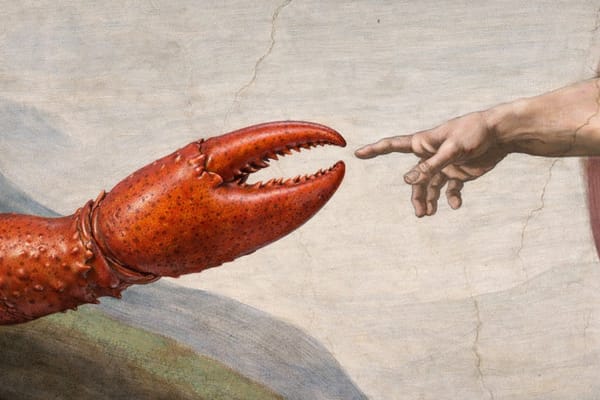Permanent assumptions
"There can be a handful of things you have unshakable faith in – your permanent assumptions."

A couple of weeks ago, the always brilliant Morgan Housel wrote on his blog Collaborative Fund about permanent assumptions.
Some things are always changing and can’t be known. There can also be a handful of things you have unshakable faith in – your permanent assumptions.
Reading that post prompted me to ask myself: what are my permanent assumptions?
Here are 10.
1. You can't understand human behaviour without understanding evolution first.
We are first and foremost apes who have spent the vast majority of our time on the planet as hunther-gatherers in the African savannah. Our brain, biology, social instincts all have evolved in that environment over million of years while "modern society" has only been around for a couple thousand years.
2. Tribalism shapes many more decisions than we think.
Related to #1: having spent the majority of our time in small tribes, our instincts have been shaped primarily by loyalty to our "tribe", be that our country, our religion, or even a football team or a social cause (e.g: Veganism)
3. Incentives are the strongest force in the world.
I borrowed this one from Housel. You will never find a better way to change a behaviour than adjusting incentives. It's like magic.
4. Any lie, repeated enough times, becomes a self-evident truth to some people.
Analysing every piece of information takes time and puts a huge strain on our cognitive load. At the same time,repetition induces cognitive ease and a comforting feeling of familiarity. Hence, as proved by many dictatorships all over the world, a reliable way to make people believe in falsehoods is frequent repetition, because familiarity is not easily distinguished from truth.
5. True happiness comes from within.
Happiness that comes from material conditions is fleeting. You can only be truly happy when your mind is calm and not in a craving state.
6. Hard work is about intensity, not long hours.
Humans can only work at high intensity for a limited amount of time (3-5 hours/day max). Being productive and "working hard" is about making sure you can work at a high-intensity for a few hours, not working long hours.
7. History is the study of human behaviour, not events.
.We study history not to learn about events. Historical events rarely repeat themselves. We study history to learn how people reacted to such events. People’s behaviour never changes. As Voltaire said “History never repeats itself, but man always does”
8. We are the hero of our own story.
We evolved to put the needs, emotions and perspective of one person in front of everybody else's. Ourselves.
9. Perspective is all that matters.
Related to #8: we know we see the world through our own biased lenses, yet we think that's exactly how the world looks like to everyone else.
10. Compound interest
As Bill Gates famously said: “Most people overestimate what they can do in one year and underestimate what they can do in ten years.” If incentives are the strongest force in the world, compound interest is the strongest force in the universe.


